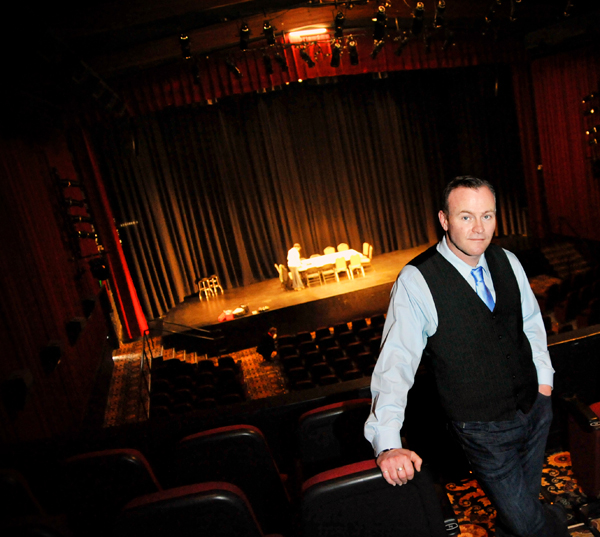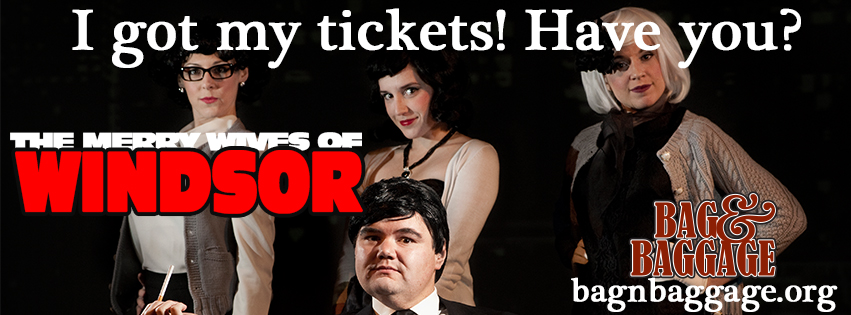- Skip to primary navigation
- Skip to secondary navigation
- Skip to main content
- Skip to primary sidebar
Being A Play’s Cool Uncle
Being A Play’s Cool Uncle
 Frank Hauser, the great director, wrote in his Notes on Directing, that the Director’s role is to be an obstetrician; “You are not the parent of this child we call the play. You are present at its birth for clinical reasons, like a doctor or midwife. Your job most of the time is simply to do no harm. When something does go wrong, however, your awareness that something is awry–and your clinical intervention to correct it–can determine whether the child will thrive or suffer, live or die.”
Frank Hauser, the great director, wrote in his Notes on Directing, that the Director’s role is to be an obstetrician; “You are not the parent of this child we call the play. You are present at its birth for clinical reasons, like a doctor or midwife. Your job most of the time is simply to do no harm. When something does go wrong, however, your awareness that something is awry–and your clinical intervention to correct it–can determine whether the child will thrive or suffer, live or die.”Great.
Not only do I not get to have the fun of conceiving the child (other than in an amorphous, clinical way), but it also lands on my shoulders to keep the damn squealing little brat from putting its hand on a hot stove, prevent it from sticking its finger in a light socket or eating a bag full of broken glass. Great.
But preventing the eating of bits of broken glass happens so rarely in my life as a director that I really should be profoundly grateful. Normally, and in almost every instance, my obstetrician’s job contains all of the very best parts of midwifing a play and very few of the disgusting or unpleasant roles that a parent is called upon (daily) to complete. I can honestly say that I have only once ever had to “change a play’s diaper” (as it were) and only rarely have had to scold the play, put it in time-out or take away its cell phone for a week as a punishment. Most of the time I get to be the kooky uncle…the one that encourages the play to be disrespectful to its elders, to stay out past its bed time, to try a wine cooler before turning 21 and absolutely, unequivocally praise the play’s decision to get a butterfly tattoo or a nipple ring.
Being the cool uncle is great.
But it is only great because there are, in fact, parents and more immediate family members taking care of the play while I sit on the sidelines judging their parenting skills and generally feeling superior.
For “The Merry Wives of Windsor, or the Amorous Adventures of the Comical Knight Sir John Falstaff,” I have had the great pleasure of working with an incredibly dedicated group of parents or parental stand-ins:
Megan Wilkerson, our Scenic Designer, has played the role of matriarch with the kind of cultivated emotional distance and piercing clarity that only a terrifying grandmother could muster. She has hovered in the background, dropping little hints like “are you sure you think that is a good idea?” or “Maybe a better decision would be…” so smoothly that I hardly even know that the decision I’ve made is, in fact, her decision. All the while, Megan has built the foundation and infrastructure for the show upon which everything else rests.
Melissa Heller, our Costume Designer, is the young trophy step-mother that is more of a peer to the play than a parent; but, like Julia Roberts in Step Mom, she is clearly the favorite, the hipper parent, the one that understands that patience and wisdom are rarely replacements for passion and instinct. Her costume designs, her flexibility and her unnatural (almost preternatural) ability to work on no sleep whatsoever has taken our idea to do a 1950s “black and white” sitcom to another level entirely, into BEING a black and white sit-com from the 1950s. The play leaves the house every morning knowing that it is wearing the coolest clothes and that there is no chance that other plays will pick on it for wearing hand-me-downs. Plus, all of our play’s friends think our play’s step mom is hot.
Jonathan “Bearclaw” Hart, our Lighting Designer, is the older brother who has had to take on some duties of fathering the play (as, sadly, our play’s real father is spending some time in the slammer). Bearclaw brings a level of calm competency to his work that is akin to watching an older brother fix a radiator (or whatever) with a screwdriver and a piece of chewing gum while the car sits in the driveway with the hood up. No idea how he does it, but filled with pride that it seems so easy for him.
Audra Petrie (our Production Manager) and Becci Swearingen (our Stage Manager) are our play’s sweet but steely aunties that our play had to go and live with for a couple of years (after our play’s unfortunate joy riding spree). Our play knows that Audra and Becci love it, but our play also knows they won’t take any of its shit. With a telling smile, and a look in their eyes that says “this ain’t my first time at the rodeo, punk” Becci and Audra have given our play couple of good smacks on the backside and access to the cookie jar.
If it feels like I’m pushing the metaphor, you clearly haven’t ready all the way to the end, because here is the thing: even with all of these parents, aunts, uncles, older brothers and grandmothers around, our play still has to make its own decisions, take responsibility for its actions, and be the play that we have raised it to be. Our play’s life is in the hands of the actors now and (although I am tempted to shout “god help us all!”) that is exactly where it should be.
Go on, play. Move out. Get a roommate who won’t do dishes, have an inappropriate crush on one of your TAs, lie to us about your phone bill, and max out that credit card.
Just remember all of things that your parents and I tried to teach you: be honest, have fun, don’t be a dick, follow the rules, know that you are the smartest and prettiest play we’ve ever raised, be on time, work hard, and (not usually a parenting lesson) pick up the damn pace!!But, above all else, know this: your cool uncle is here, ready to step in to stop you from eating that bag of broken glass.
I really wish you weren’t the kind of play that was inexplicably drawn to eating broken glass, but there you have it; we can pick our friends, but we can’t pick our family.
The Merry Wives of Windsor,
or The Amorous Adventures of The Comical Knight Sir John Falstaff
March 7 – 24, 2013 The Venetian Theatre 253 E Main Street, Hillsboro Tickets: www.bagnbaggage.org or 503 345 9590


Reader Interactions